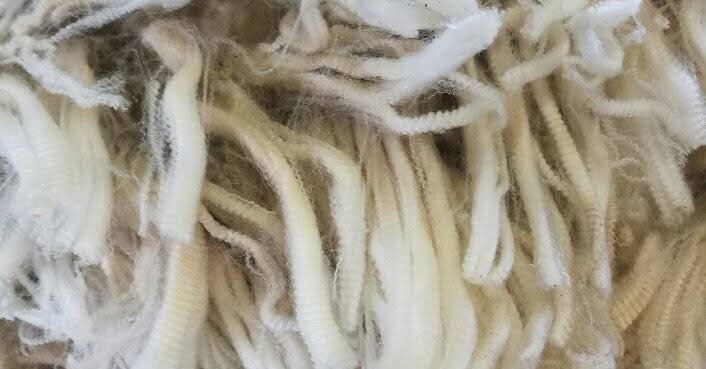After two weeks of small but positive lifts, the Australian wool market again slipped last week, with general losses recorded across most micron categories.
The AWEX Eastern Market Indicator (EMI) fell by 12 cents to close at 1171 cents per kilogram, clean.
In US dollar terms, compared to the week prior, with minimal currency movement, the EMI fell by 8c to close at 813c/kg.
Compared to the same sale last year, the EMI has dropped by 652c or 35.8 per cent.
According to AWEX market information manager, Lionel Plunkett, the large number of low yielding wools entering the market just aren’t meeting the buyers requirements.
He said many buyers contributed the losses to the inability to average the required 70pc washing yield required for many Chinese orders.
“In contrast to this, the limited number of high yielding, better style wools attracted strong buyer demand and were the least affected by the falling market,” Mr Plunkett said.
Lionel Plunkett AWEX -market information manager said, “The limited number of high yielding, better style wools attracted strong buyer demand and were the least affected by the falling market”

According to AWEX reports, stylish, high-yielding lots tended to hold their value.
The market opened strongly on Wednesday in Melbourne and Fremantle, but as the sale progressed, prices started to fail.
Reversal continued on the second day of selling with Sydney and Melbourne sales recording losses between 10 and 49 cents.
In Sydney, losses between 29 and 35 cents occurred across all microns, yet non-mulesed, stylish lots were less affected.
The positive movements in the crossbred wools with strong demand for the well-prepared lots was the only factor stopping the EMI plummeting further.
They rose by five to 10c for the week, with the broader end of crossbred lots gaining up to 15c.
Oddments and cardings also made small ground, rising by an average of 14c.
In total 19,146 bales were sold from 21,785 offered bringing the pass-in rate to 12.1pc.
AWEX reports the value of the wool sold was $25 million or $1306 per bale, taking the season total to $1.898 billion ($1632 per bale).
There will be no sale in Fremantle next week, with just Sydney and Melbourne operating, so the national offering is again extremely low with just 16,819 bales on offer.
Year on year, the national offering has fallen by 190,532 bales or 11.8pc.
The number of bales sold at auction this season is now 19.2pc less than 2018/19.

